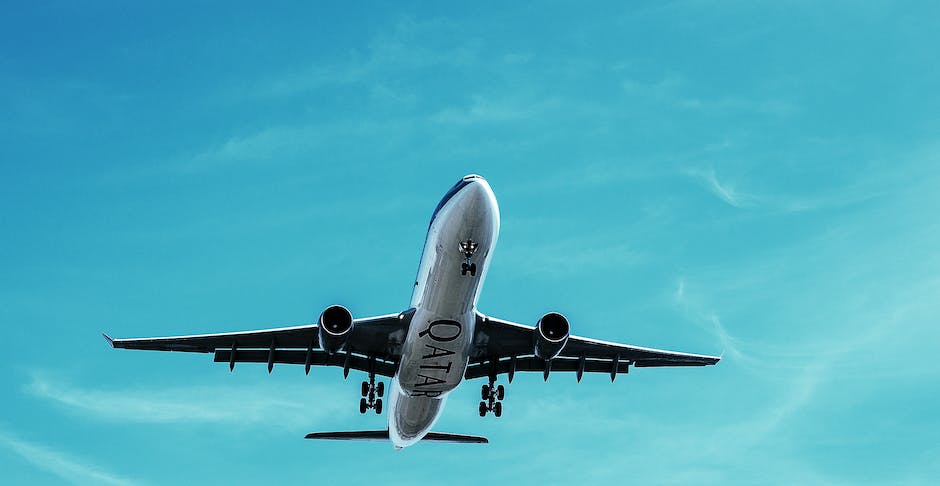The Pros and Cons of Travelling by Airplane
Exploring the Benefits and Drawbacks of Air Travel
Travelling by airplane has revolutionized the way we explore the world. It has made long-distance travel more accessible and convenient. However, like any form of travel, it comes with its own set of advantages and disadvantages. In this article, we will delve into the pros and cons of travelling by airplane, examining both the benefits and drawbacks of this widely used mode of transportation.
From speed and efficiency to environmental impact and health concerns, there are various aspects to consider when evaluating air travel. Whether you're a frequent flyer or someone considering air travel for the first time, understanding the pros and cons can help you make informed decisions and better prepare for your journey.
Pros
Travelling by airplane offers a range of benefits that have transformed the way we explore the world. From rapid travel times to global connectivity, here are some of the most compelling advantages of air travel:
Speed and Efficiency
One of the most significant advantages of air travel is the speed and efficiency it offers. Unlike other modes of transportation, airplanes can cover vast distances in relatively short time spans. This makes air travel ideal for long-distance journeys, allowing passengers to reach their destinations in a fraction of the time it would take by car, train, or ship.
Convenience and Comfort
Modern airplanes are equipped with advanced amenities and features designed to enhance the travel experience. From in-flight entertainment and comfortable seating to onboard services, airlines strive to provide passengers with a high level of convenience and comfort throughout their journey. This has made air travel a popular choice for individuals and families seeking a seamless travel experience.
Accessibility to Remote Locations
In regions where other modes of transportation are limited or impractical, airplanes offer crucial accessibility to remote locations. Whether it's reaching an island destination or accessing areas with challenging terrain, air travel provides essential links to places that may be otherwise difficult to reach via conventional means.
Efficient Business Travel
For business professionals and entrepreneurs, air travel has become indispensable for conducting global business operations. The ability to swiftly move between international hubs facilitates important meetings, conferences, and trade engagements, contributing to global economic integration.
Exploration of Cultures
Travelling by airplane allows individuals to explore and immerse themselves in different cultures. This exposure to new traditions, languages, and lifestyles can lead to personal growth and a broader understanding of the world. This can be especially enriching for those who have a passion for anthropology, history, or sociology.
Time Management
Air travel offers significant time management advantages, particularly for individuals with limited vacation time or business commitments. By reducing travel time, it provides the opportunity to maximize the time spent at the destination, allowing for more exploration and relaxation. This can be especially advantageous for those with busy schedules and multiple obligations.
Global Connectivity
Air travel has made global connectivity more accessible than ever before. With a network of airports spanning the globe, passengers can easily reach distant destinations and connect with people and cultures across continents. This level of connectivity has opened up new opportunities for trade, tourism, and international cooperation.
Missing a pro?
Let us know which pro you are missing!
Cons
While air travel has revolutionized the way we move across the world, it is not without its drawbacks. From environmental concerns to potential health impacts, here are some of the key disadvantages associated with travelling by airplane:
Environmental Impact
The environmental impact of air travel, particularly in terms of carbon emissions, has raised significant concerns in the context of climate change. Airplanes contribute to greenhouse gas emissions, and the rapid growth of air travel has led to calls for more sustainable practices and technologies within the aviation industry.
Health and Safety Considerations
Air travel poses various health and safety considerations for passengers, including the risk of deep vein thrombosis, exposure to infectious diseases, and the potential impact of extended periods of time spent in pressurized cabins. Additionally, the stress and security protocols associated with air travel can contribute to traveler fatigue and anxiety.
Disruptions and Delays
While air travel is known for its speed and efficiency, it is also susceptible to disruptions and delays due to a range of factors such as weather conditions, air traffic congestion, and technical issues. These uncertainties can lead to inconvenience for passengers and impact travel schedules and commitments.
Airport Security and Procedures
The stringent security measures and procedures implemented at airports, while essential for passenger safety, can be time-consuming and intrusive. The process of navigating security checkpoints, customs clearance, and boarding protocols can add to the stress and wait times associated with air travel.
Jet Lag
One of the primary disadvantages of air travel is the potential for jet lag. Crossing different time zones can disrupt the body's internal clock, leading to symptoms such as fatigue, insomnia, and reduced cognitive function. This can significantly impact the first few days of a trip or impair productivity after returning home.
Limited Mobility
Travelling by airplane can be challenging for individuals with reduced mobility or disabilities. Accessibility in airports and aircraft may not always meet the needs of all passengers, leading to discomfort and potential barriers to travel. This limitation can restrict the freedom and independence of those with mobility issues.
Cost and Affordability
For many travelers, the cost of airfare can be a significant barrier to frequent or long-distance travel. Fluctuating ticket prices, additional fees, and the overall expense of air travel can make it less accessible for individuals and families on a budget, leading them to seek alternative modes of transportation.
Missing a con?
Let us know which con you are missing!
Conclusion
Travelling by airplane presents a blend of advantages and disadvantages that must be carefully weighed when considering air travel. While it offers unparalleled speed, global connectivity, and convenience, it also raises concerns related to environmental impact, affordability, and passenger well-being. By understanding the pros and cons of air travel, individuals can make informed decisions and contribute to the ongoing conversation about the future of aviation.
What do you think?
Do you think the pros outweigh the cons?







